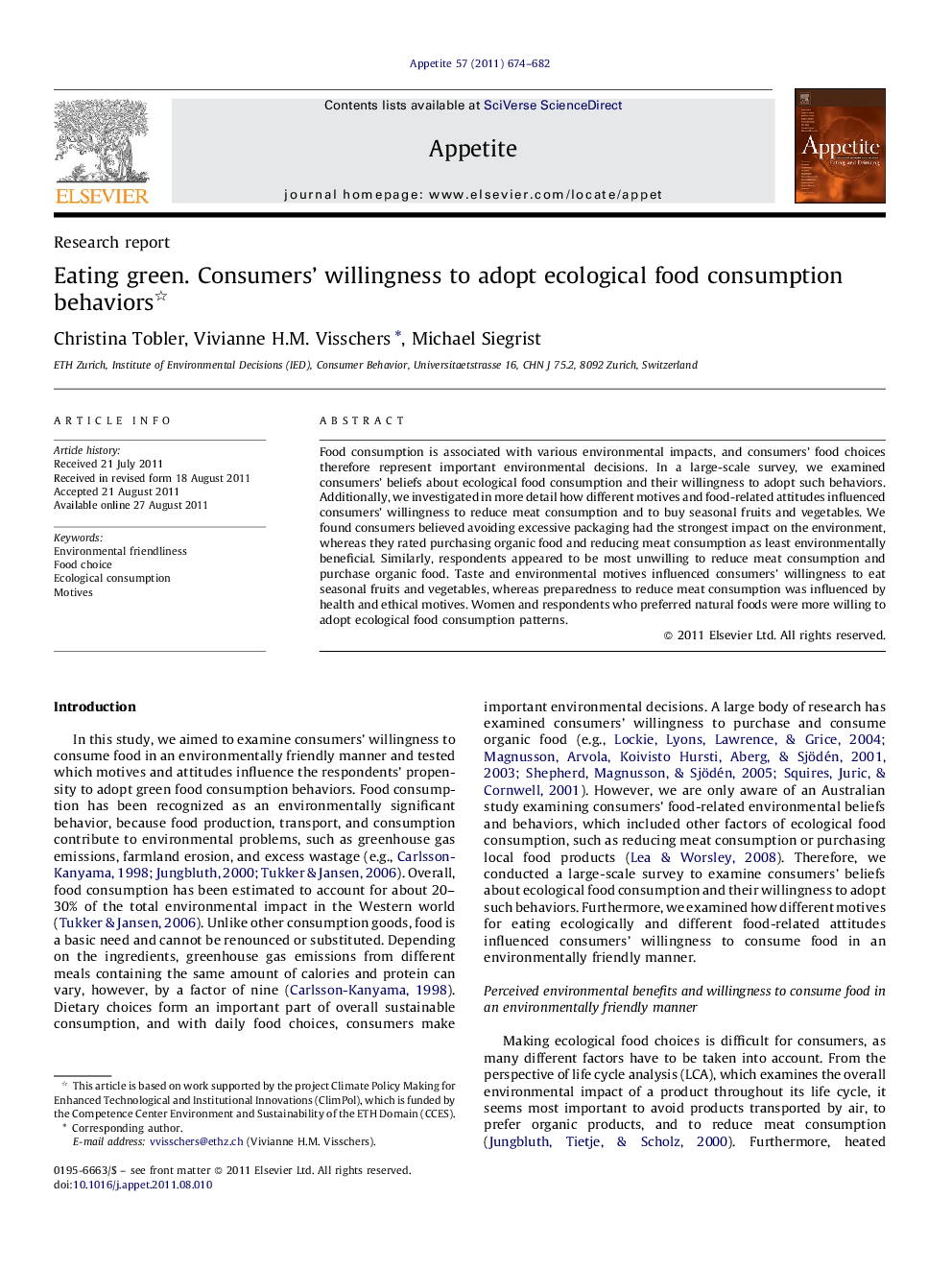| Article ID | Journal | Published Year | Pages | File Type |
|---|---|---|---|---|
| 940602 | Appetite | 2011 | 9 Pages |
Food consumption is associated with various environmental impacts, and consumers’ food choices therefore represent important environmental decisions. In a large-scale survey, we examined consumers’ beliefs about ecological food consumption and their willingness to adopt such behaviors. Additionally, we investigated in more detail how different motives and food-related attitudes influenced consumers’ willingness to reduce meat consumption and to buy seasonal fruits and vegetables. We found consumers believed avoiding excessive packaging had the strongest impact on the environment, whereas they rated purchasing organic food and reducing meat consumption as least environmentally beneficial. Similarly, respondents appeared to be most unwilling to reduce meat consumption and purchase organic food. Taste and environmental motives influenced consumers’ willingness to eat seasonal fruits and vegetables, whereas preparedness to reduce meat consumption was influenced by health and ethical motives. Women and respondents who preferred natural foods were more willing to adopt ecological food consumption patterns.
► Consumers lack information about the environmental impacts of food consumption. ► Consumers seem unwilling to consume organic food and reduce meat consumption. ► Environmental arguments alone might not persuade consumers to eat ecologically. ► Ecological consumption campaigns should also highlight nonenvironmental benefits.
